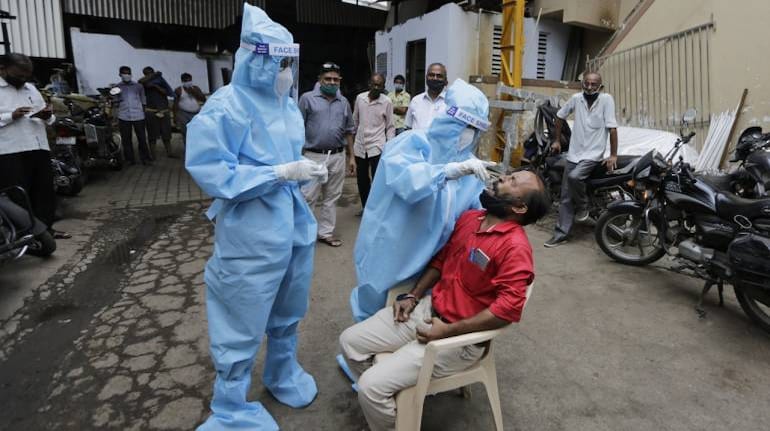



India generated 18,006 tonnes of COVID-19 biomedical waste in the last four months, with Maharashtra contributing the maximum (3,587 tonnes) to it, according to a Central Pollution Control Board (CPCB) data.
Around 5,500 tonnes of COVID-19 waste was generated across the country in September - the maximum for a month so far.
According to the data received from state pollution control boards, since June, all states and Union Territories have generated 18,006 tonnes of COVID-19-related biomedical waste which is being collected, treated and disposed of by 198 common biomedical waste treatment facilities (CBWTFs).
COVID-19 biomedical waste could include PPE kits, masks, shoe covers, gloves, human tissues, items contaminated with blood, body fluids like dressings, plaster casts, cotton swabs, beddings contaminated with blood or body fluid, blood bags, needles, syringes etc.
According to the data, Maharashtra generated 3,587 tonnes of COVID-19 waste in four months since June, followed by Tamil Nadu (1,737 tonnes), Gujarat (1,638 tonnes), Kerala (1,516 tonnes), Uttar Pradesh (1,432 tonnes), Delhi (1,400 tonnes), Karnataka (1,380 tonnes) and West Bengal (1,000 tonnes).
Around 5,490 tonnes of such waste was generated in September, with Gujarat contributing the maximum 622 tonnes, followed by Tamil Nadu (543 tonnes), Maharashtra (524 tnnes), Uttar Pradesh (507 tonnes) and Kerala (494 tonnes).
Follow our LIVE blog for the latest updates of the novel coronavirus pandemic
Delhi generated 382 tonnes of COVID-19 bio-medical waste in September, according to the CPCB data.
Around 5,240 tonnes of COVID-19 waste was generated in August, of which 1,359 tonnes was in Maharashtra, and 588 tonnes each in Kerala and Karnataka.
In July, the country generated 4,253 tonnes of COVID-19 waste, with Maharashtra (1,180), Karnataka (540) and Tamil Nadu (401) being the top three contributors.
India generated 3,025 tonnes of COVID-19 waste in June, with Maharashtra alone accounting for 524 tonnes, followed by Gujarat (350 tonnes), Delhi (333 tonnes) and Tamil Nadu (312 tonnes)
The CPCB had in March issued specific guidelines for handling, treatment and disposal of such waste at healthcare facilities, quarantine centres, homes, sample collection centers, laboratories, pollution control boards, urban local bodies and common biomedical waste treatment facilities (CBMWTFs).
The apex pollution body had in May developed the COVID19BWM mobile application to monitor coronavirus-related biomedical waste and to compile the data through electronic manifest system.
This application tracks COVID-19 waste at the time of generation, collection and disposal.
The Supreme Court has made it mandatory for all urban local bodies and state pollution control boards to use the mobile application for tracking biomedical waste daily in a bid to ensure that the waste is collected, transported and sent to the registered CBMWTFs.
The directions came on July 30 on recommendations made in a report by the Environment Pollution (Prevention and Control) Authority.
As on Monday, India's COVID-19 caseload stands at 71.2 lakhs while the death toll is 1.09 lakh.
Follow our full coverage of the coronavirus pandemic here.
Discover the latest Business News, Sensex, and Nifty updates. Obtain Personal Finance insights, tax queries, and expert opinions on Moneycontrol or download the Moneycontrol App to stay updated!